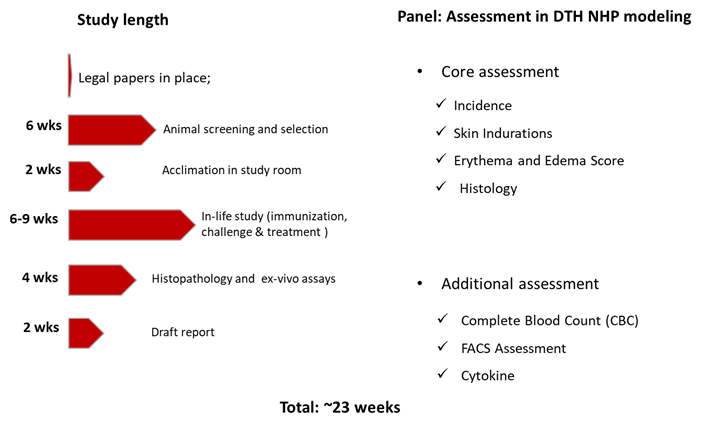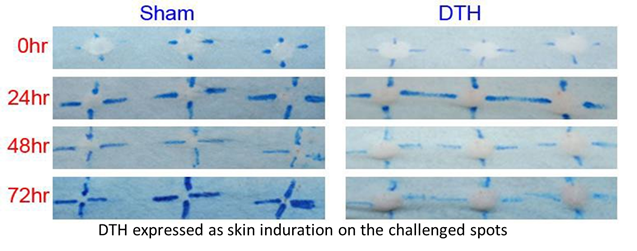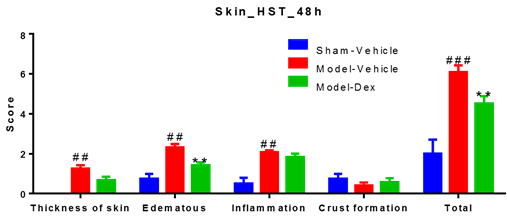


Delayed type hypersensitivity (DTH), also known as cell mediated immune memory response or type IV hypersensitivity is characterized by erythema and induration at the site of contact in sensitized humans or animals. It is involved in the pathogenesis of many infectious diseases (tuberculosis, leprosy, blastomycosis, histoplasmosis, toxoplasmosis, leishmaniasis, etc.), autoimmune diseases and granuloma due to infection of foreign antigens. Another form of DTH is the contact dermatitis caused by poison ivy, chemicals or heavy metals, etc. Systemic injection of an antigen in an animal results in fever, synthesis of acute phase proteins and death in some instances. The histology of DTH can be different for different species, but in general it is characterized with an influx of immune cells at the site of injection, either macrophages and basophils in human and mice or neutrophils in guinea pigs and induration which becomes apparent within 24-72 hours. T cells (either CD4+ or CD8+ depending on the antigen) are required to initiate the reaction even though they make up only a small fraction (10-20%) of the inflammatory infiltrates. Cytokines secreted by helper T cells (monocyte chemotactic factor, interleukin-2, interferon γ, TNFα/β) represent the early hallmarks of the inflammation. However, it remains unclear whether the recruitment of other immune cells to the site of challenge is directly regulated by T cells.




